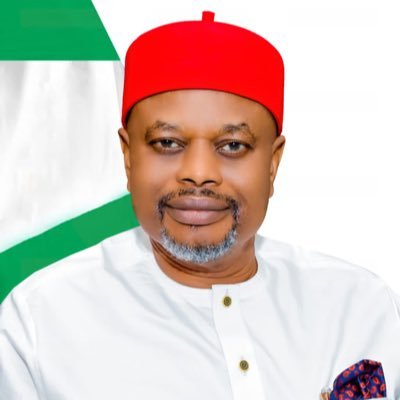Nigeria requires accurate, reliable and timely energy data to drive and track energy transition processes, the federal government has said.
The Minister of Innovation, Science and Technology, Chief Uche Nnaji, stated this on Monday in Abuja at the official launch of the computerised National Energy Information System (NEIS).
The event was organised by the Energy Commission of Nigeria (ECN) in collaboration with ECOWAS to boost and enable better energy programming in the country.
Nnaji said the launch would improve the federal government’s efforts to better plan, policy formulation and make informed decisions related to the country’s energy sector transformation.
- Power struggle in NDDC impedes N/Delta dev’t — Gov Diri
- Kano govt orders probe into alleged assault on doctor by commissioner
The minister also said the current need for energy transition called for a more holistic approach that would revolutionise the process, so that project designs, policies and strategies are informed by high-quality and reliable energy data.
“The NEIS was conceived to achieve dematerialised data collection, reduce data entry error and processing time, improve the speed of data dissemination and improve data quality accordingly. This is an occasion intended to usher in an innovative approach to the collection, collation, harmonisation, validation and dissemination of energy data.
“The ECN is cognisant of the need to improve energy data collection methods by setting up systems which respond to the country’s data needs. These include all sectors of the economy, to improve energy data quality and coverage,” Nnaji said.
Also speaking, the Director General of ECN, Dr Mustapha Abdullahi, said the collated data would serve as an input into the development, operation and maintenance of the NEIS.
He said the NEIS would be assessed by researchers, development partners, individuals and organisations to plan; make informed decisions, and take effective actions in the management of energy supply, use and costs.
“In order to further achieve this mandate, we must work with other relevant governmental and non-governmental organisations that generate, collate, analyse, disseminate and use energy data. This will usher in a computerised infrastructure that will lead, among other things, to dematerialise data collection, reduce data entry errors and processing time.
“It will also improve the speed of disseminating statistics, eliminate data loss and improve data quality and energy planning,” Abdullahi said.
Also speaking, the Commissioner of Infrastructure, Energy and Digitalisation, ECOWAS, Sédiko Douka, said the computerised system had a detailed energy database and relevant indicators calculated according to international standards.
He said ECOWAS was committed to improving and harmonising information, communication and accessible real-world data and indicators in space, expressing optimism that Nigeria would take steps to ensure the sustainability of this important tool.
“This is the reason why we have also made available to the provider a dashboard where it will be able to visualise and analyse all the data. All these indicators will be more accessible when data providers have more means to communicate with them,” he said.

 Join Daily Trust WhatsApp Community For Quick Access To News and Happenings Around You.
Join Daily Trust WhatsApp Community For Quick Access To News and Happenings Around You.
